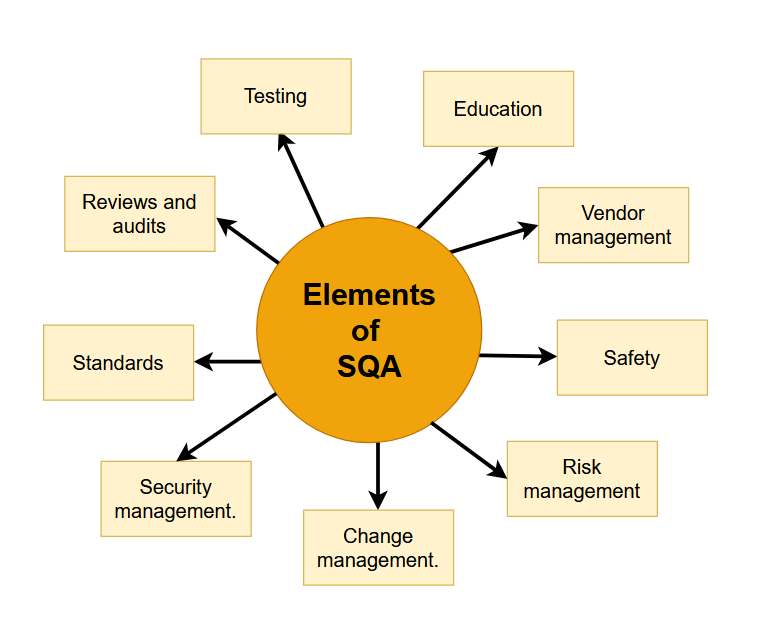Software Quality Assurance
How It Works
How It Works
01
Planning
During the strategy phase, we deeply analyze your business and industry to understand your unique marketing needs. Your strategy should reflect this uniqueness.
02
Requirements Analysis
In the strategy phase, we thoroughly explore your business and industry to pinpoint your marketing requirements, ensuring a tailored approach reflecting your uniqueness.
03
Test Planning
With our strategic approach, we delve into your business and industry to understand your unique marketing needs, ensuring your strategy reflects your distinctiveness.
04
Design
During the strategy phase, we deeply analyze your business and industry to understand your unique marketing needs. Your strategy should reflect this uniqueness.
05
Implementation
In the strategy phase, we thoroughly explore your business and industry to pinpoint your marketing requirements, ensuring a tailored approach reflecting your uniqueness.
06
Execution
With our strategic approach, we delve into your business and industry to understand your unique marketing needs, ensuring your strategy reflects your distinctiveness.
07
Reporting
During the strategy phase, we deeply analyze your business and industry to understand your unique marketing needs. Your strategy should reflect this uniqueness.
08
Defect Management:
During the strategy phase, we deeply analyze your business and industry to understand your unique marketing needs. Your strategy should reflect this uniqueness.
09
Process Improvement
With our strategic approach, we delve into your business and industry to understand your unique marketing needs, ensuring your strategy reflects your distinctiveness.

Perfect
Perfect Setup
A perfect setup for Software Quality Assurance (SQA) involves meticulous planning, comprehensive test coverage, and continuous improvement. It begins with clear quality objectives and a well-defined quality management plan. Requirements are thoroughly analyzed and translated into detailed test cases. Testing encompasses various techniques, including functional, performance, and security testing, executed rigorously throughout the development lifecycle. Defects are promptly identified, tracked, and resolved, with regular reporting to stakeholders. Process metrics are collected to drive continuous improvement initiatives. SQA teams are empowered with skilled personnel, robust tools, and efficient communication channels. This holistic approach ensures the delivery of high-quality software products that meet user expectations.
Software Quality Assurance
Elements Of SQA
Software Quality Assurance (SQA) encompasses several key elements to ensure the reliability and effectiveness of software products. These elements include comprehensive testing methodologies to identify and address defects, adherence to established quality standards and best practices, rigorous documentation of processes and procedures, continuous monitoring and evaluation of software performance, proactive risk management to mitigate potential issues, and a commitment to ongoing process improvement. By integrating these elements into the software development lifecycle, organizations can deliver high-quality software that meets user requirements, complies with industry standards, and maintains customer satisfaction while minimizing risks and enhancing efficiency.

Frequently asked
questions about
Software Quality
Assurance
Software Quality Assurance (SQA) is a systematic process ensuring software products meet defined quality standards throughout development. It involves planning, defining objectives, analyzing requirements, designing test cases, executing tests, evaluating results, and reporting findings.
Software Quality Assurance (SQA) is utilized to ensure that software products meet predefined quality standards and fulfill user expectations. By implementing SQA processes, organizations can identify and rectify defects early in the development lifecycle, reducing the risk of costly rework and ensuring reliable, functional, and high-performance software.
Software Quality Assurance (SQA) is vital as it ensures that software products meet user expectations, function reliably, and adhere to quality standards. By implementing SQA processes, organizations can minimize defects, reduce rework costs, and enhance customer satisfaction. SQA also helps mitigate risks associated with software failures, protects brand reputation, and fosters trust among stakeholders. Additionally, it promotes efficient development practices, improves team collaboration, and facilitates regulatory compliance.
